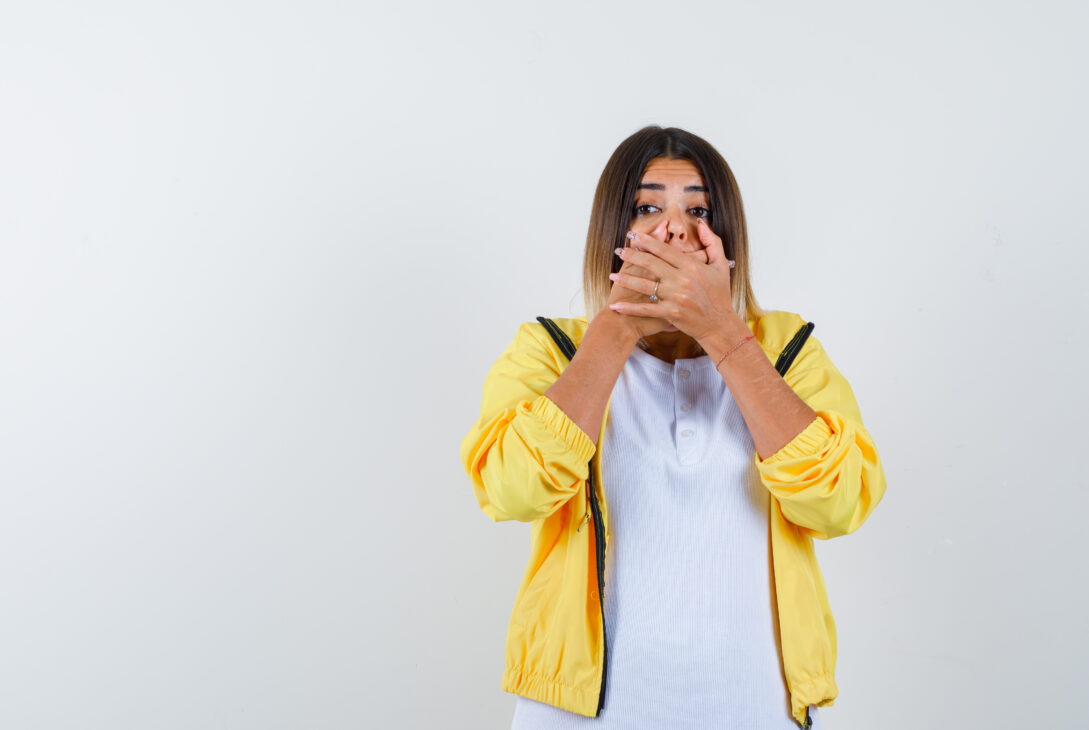Hiccups occur as a result of the diaphragm contracting quickly while the vocal cords shut impulsively, producing the sound ‘hic’. Though mostly harmless, it can be annoying when it lasts long. Eating fast food or drinking carbonated drinks and excitement or stress are significant factors leading to hiccups. The good thing is that these hiccups last for less than a minute but might become persistent making one want to know what triggers them.
So, if you want to know how to stop hiccups, do not look further than this blog.
8 Effective Methods To Stop Hiccups Fast
Water Ingestion
Cold water decreases your body temperature, eventually resetting your diaphragm or stimulating the Vagus nerve, stopping the hiccup cycle. So, drink a glass of water slowly and steadily or use a straw to curb hiccups.
Pressure Points
Well, if you are tired of using the same remedy repeatedly, you can try pressure points as a relaxation alternative. Simply pressing on these locations with your hands will help you relax your diaphragm or stimulate your vagus nerve. To prevent hiccups, apply pressure to the mouth, the side of the noises, or even around the neck.
Cold Water Gargle
Gargling with cold water stimulates the vagus nerve and soothes the diaphragm. The low temperature experienced during gargling and the action interrupts the reflex involved in hiccupping. Gargle cold water for 30-60 seconds, then spit or swallow.
Eat Sugar
Another traditional remedy is to consume a spoonful of granulated sugar. Sugar’s grainy surface causes minor irritation on the esophagus, which aids in resetting rhythmic contractions of this muscle. This strategy is particularly beneficial to children, and using it occasionally poses no harm.

Source: Freepik
Change Your Breaths
One can use breathing exercises to end hiccups by calming down and stabilizing diaphragm movements. Techniques like slow, deep breathing, or controlled breaths typically taught in yoga could do wonders. For example, inhale through your nose deeply, hold it for five counts, and breathe slowly via mouth at the same pace. Repeat if necessary.
Relieve Stress
Since stress is one factor that causes hiccups, one may opt to manage their stress levels using relaxation techniques. Meditation, progressive muscle relaxation, and mindfulness help lower stress levels, thus reducing the chances of developing hiccups. Regular practice of these activities supports general well-being and minimizes the number of stress-related hiccups.
Medicines
In case of chronic hiccups, one needs to shift from remedies to over-the-counter antacids. Still, if hiccups persist further than that, your doctor may prescribe muscle relaxants or sedatives, which cure them. However, you must gain advice on hiccups and medication before taking any medication.
Source: Freepik
Seek Medical Attention
Although most hiccups are self-resolved within two days, persistent ones last beyond 48 hours. If so, it might signal an underlying condition such as gastrointestinal problems, nerve damage, or central nervous system defects. Seek medical attention from professionals who will thoroughly diagnose you and suggest remedies.
Final Words
To sum up, hiccups can occur at times and can be annoying because they do not seem to go away. Understanding triggers and mechanisms gives you a better chance of dealing with or avoiding them. Therefore, if you ask yourself, ‘why do I keep getting hiccups?’ it is essential to identify some potential causes, such as eating too fast, drinking carbonated beverages, being excited suddenly, or being stressed out.
This article provided 8 techniques that might help one prevent future occurrences. The only thing necessary for you to start feeling better is to try these methods to determine which works best for your body. However, some underlying health conditions may exist if they last too long or become significantly severe.
FAQs
What is the average duration of hiccups?
Typically, most hiccups resolve spontaneously for a few minutes to several hours. Nevertheless, if they persist for over two days, one should seek medical advice.
Are there any severe health conditions associated with hiccupping?
However, usually harmless continuing hiccups lasting longer than 48 hours can be due to other underlying factors, including gastrointestinal problems, nerve damage, or central nervous system disorders.
Can changing diet and lifestyle habits prevent a person from getting hiccups?
Indeed, avoiding carbonated drinks, eating slowly, and managing stress can reduce the incidence of hiccups. Relaxation techniques and a balanced diet may also work as preventive measures.
References
- How to get rid of hiccups by Tim Newman and MaryAnn De Pietro (2024)
- How to Get Rid of Hiccups by Corinne Osborn (2024)







